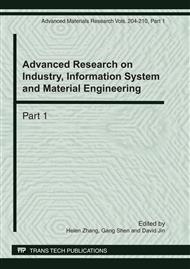p.699
p.704
p.708
p.712
p.718
p.724
p.728
p.733
p.741
An Agent-Based Simulation Model of the Economy: An Empirical Study of Negative Income Tax System in a Transition Economy
Abstract:
In this paper, we present an agent-based computer simulation model to analyze the dynamic relationship between economic growth and income difference in a transition economy and to evaluate the empirical effects of negative income tax system. Micro agents in the economy form the economic networks and enable the economy to evolve forward through the intelligential evolutionary system and mutual interactions between the agents. Based on the logical reasons of the transition economy, the model finally gives the results of the simulation: when the economy finishes rapid transition and enters into stable development, by implementing negative income tax system, government can effectively decrease income difference while at the same time maintain rapid economic growth.
Info:
Periodical:
Pages:
718-723
Citation:
Online since:
February 2011
Authors:
Price:
Сopyright:
© 2011 Trans Tech Publications Ltd. All Rights Reserved
Share:
Citation:


